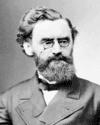Книга: Schurz Carl «A Memorial of Charles Sumner...»

|
Серия: "-" Книга представляет собой репринтное издание. Несмотря на то, что была проведена серьезная работа по восстановлению первоначального качества издания, на некоторых страницах могут обнаружиться небольшие "огрехи" :помарки, кляксы и т. п. Издательство: "Книга по Требованию" (2011)
Купить за 1314 руб в My-shop |
Другие книги автора:
| Книга | Описание | Год | Цена | Тип книги |
|---|---|---|---|---|
| A Memorial of Charles Sumner | Книга представляет собой репринтное издание. Несмотря на то, что была проведена серьезная работа по… — Книга по Требованию, - Подробнее... | бумажная книга |
Schurz, Carl

* * *
* * *
Источник: Schurz, Carl
См. также в других словарях:
Charles Sumner — For other people named Charles Sumner, see Charles Sumner (disambiguation). Charles Sumner Daguerreotype of Senator Sumner, 1855 United States Senator from Massachusetts … Wikipedia
Charles Sumner Frost — Navy Pier Auditorium Old Chicago and North Western Terminal ca … Wikipedia
Charles C. Beaman — Charles C. Beaman, (May 7, 1840 Dec. 15, 1900), lawyer, traced his descent from Gamaliel Beaman, probably a native of Bridgnorth, Shropshire, who, emigrating at the age of twelve in 1635, settled in Massachusetts. Sixth in direct line of descent… … Wikipedia
Sumner Welles — Benjamin Sumner Welles (October 14, 1892 ndash; September 24, 1961) was an American government official and diplomat in the Foreign Service.He was a major foreign policy advisor to President Franklin D. Roosevelt and served as Under Secretary of… … Wikipedia
Charles — /chahrlz/, n. 1. (Prince of Edinburgh and of Wales) born 1948, heir apparent to the throne of Great Britain (son of Elizabeth II). 2. Ray (Ray Charles Robinson), born 1930, U.S. blues singer and pianist. 3. Cape, a cape in E Virginia, N of the… … Universalium
Charles M. Loring — Born November 13, 1833 Portland, Maine, USA Died March 18, 1922 Minneapolis, Minnesota … Wikipedia
